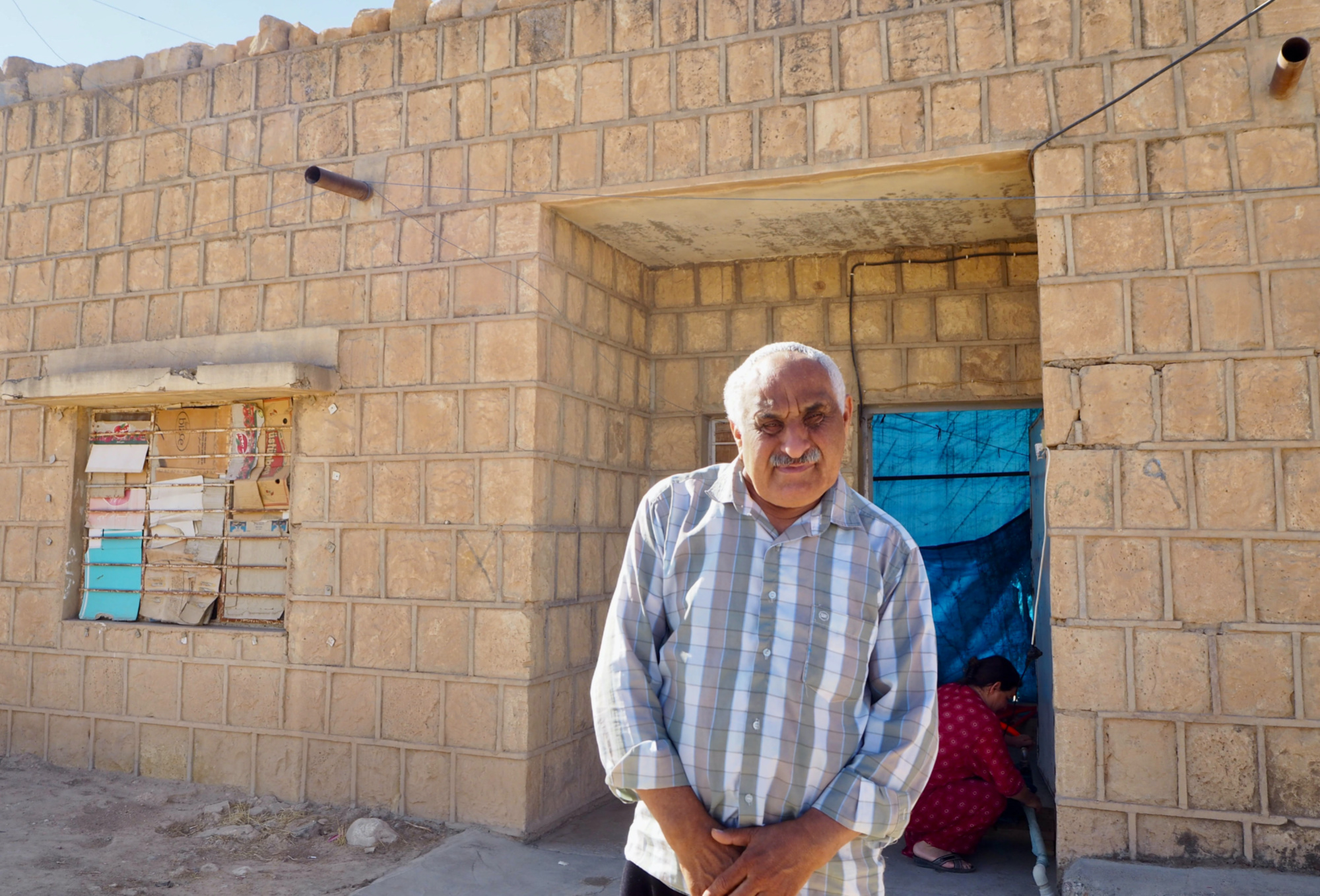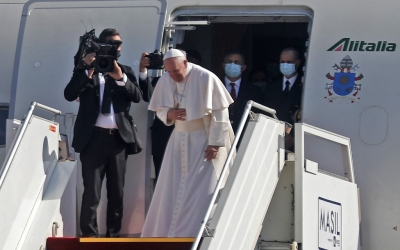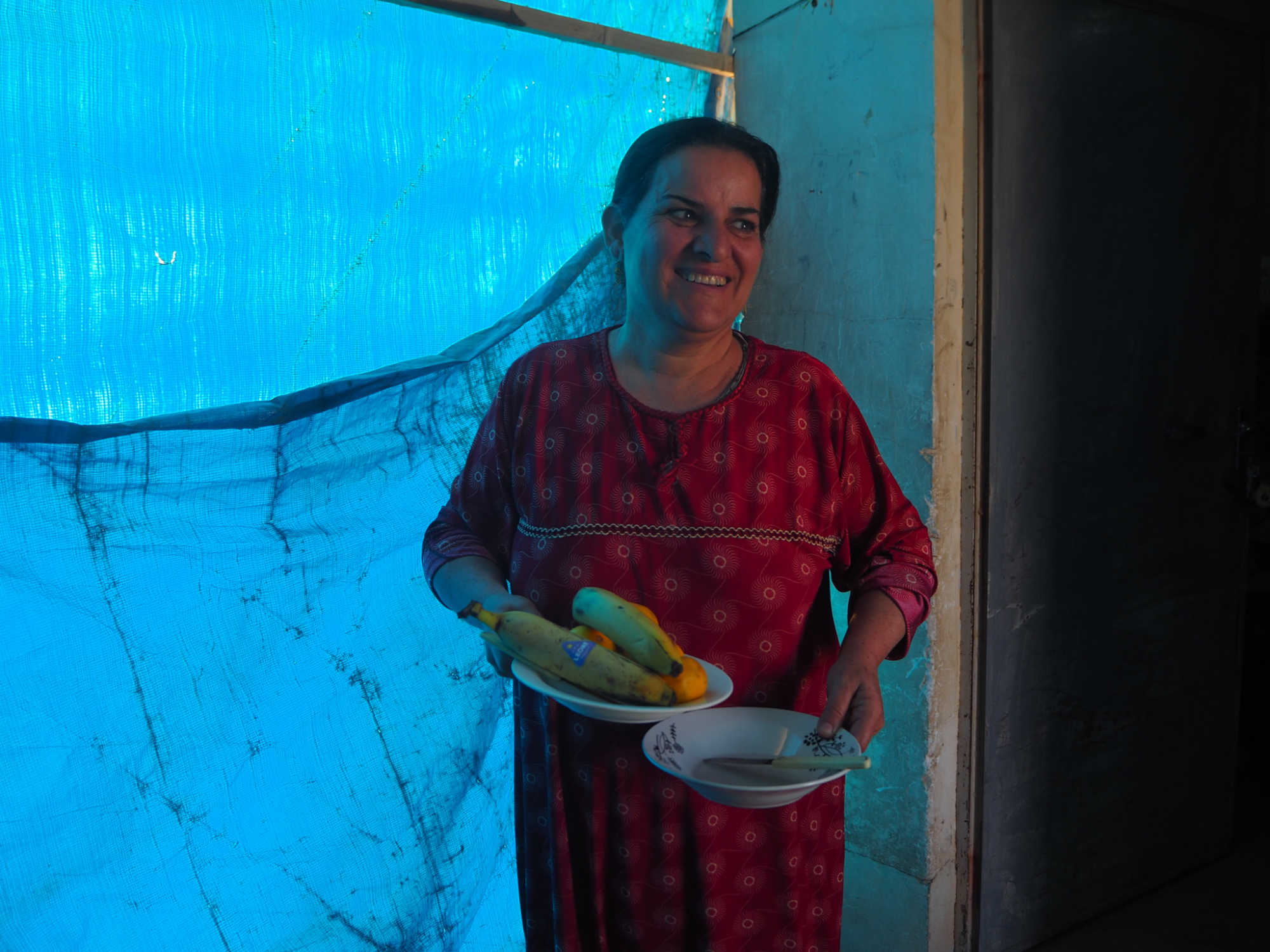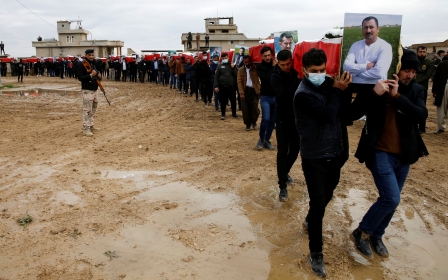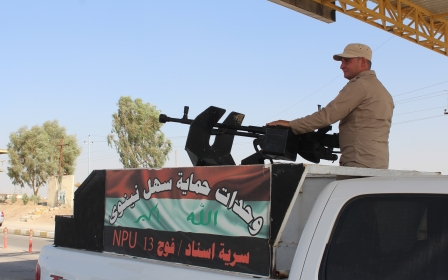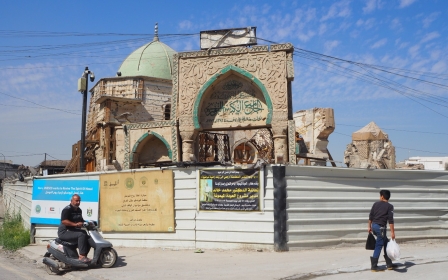Iraq: No church, no community, no future spouses for Sinjar’s only Christian returnees
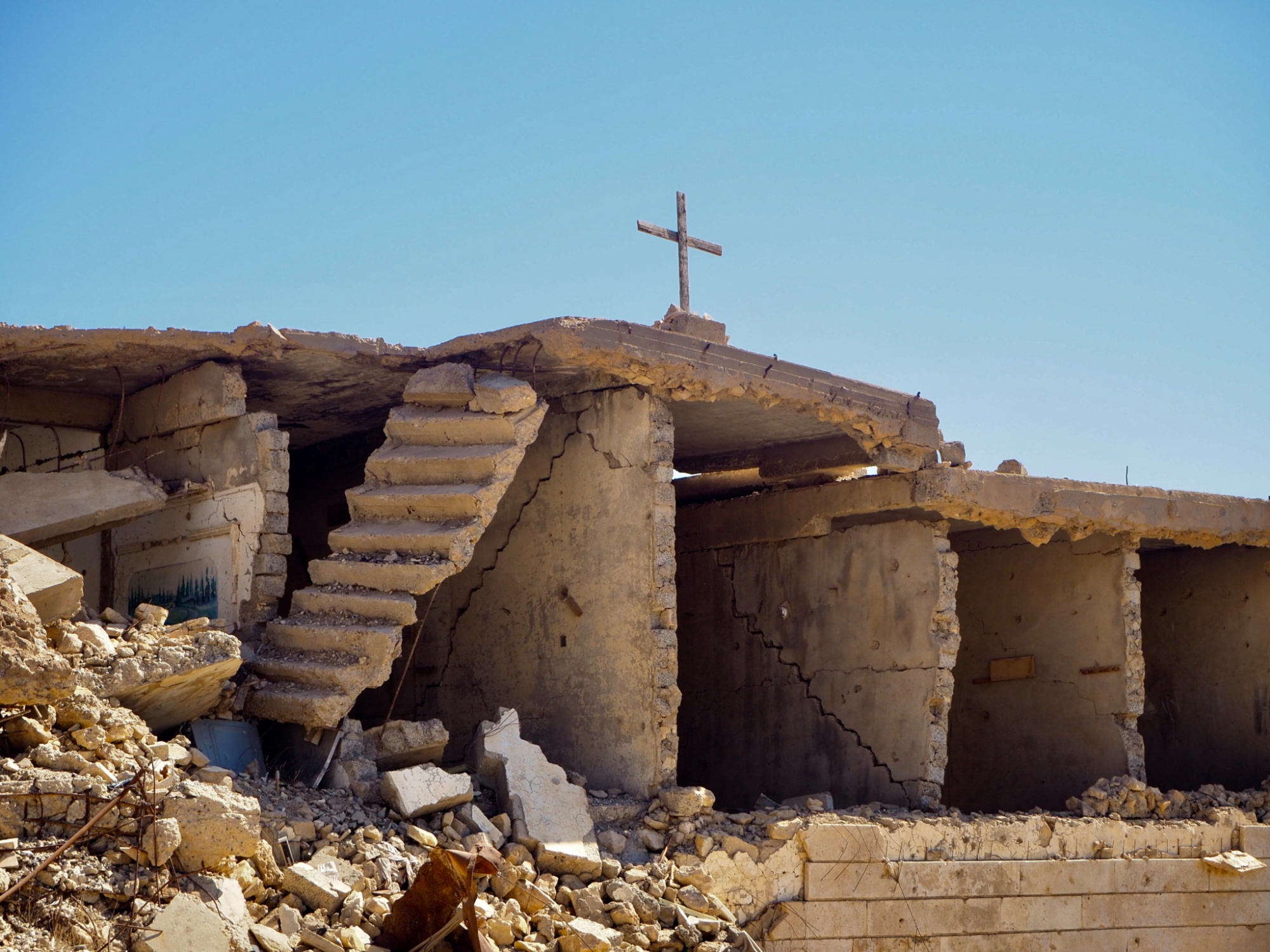
For the sole Christian family to have returned to Sinjar, three years after the Islamic State group (IS) committed genocide in the ancestral homeland of Iraq’s Yazidis, Christmas is truly a special time.
With the area’s only church left in ruins by the militant group, it is the only time in the year they are able to attend church, and they have been planning their trip for months.
“We are the only Christians here now in the whole of the Sinjar district,” Armenian Catholic Hani Ellias al-Saigh, 66, told Middle East Eye.
Before their persecution by IS, 40 Christian families lived in the area, including seven in Saigh's hometown of Sinouni, lying on the other side of Mount Sinjar, which gave shelter to some 50,000 Yazidis fleeing IS in 2014.
New MEE newsletter: Jerusalem Dispatch
Sign up to get the latest insights and analysis on Israel-Palestine, alongside Turkey Unpacked and other MEE newsletters
“There is no church here for us to worship in now. There was just one church before, in Sinjar town, but IS destroyed it so now there’s nothing,” Saigh said.
Sinjar was left largely in ruins, both from destruction by IS and the ensuing liberation battle in 2015. There has been little Iraqi government investment into rebuilding the area, which lies far from Baghdad near the Syrian border.
A handful of Sinjar’s former Christian inhabitants still living in Iraqi Kurdistan visit the area to check on their orchards and beehives but only the Saigh family have returned to live. On top of a destroyed building in Sinjar town, local Yazidis have erected a wooden cross.
“We did this to make any visiting Christians feel welcome here,” a group of young locals told MEE two years ago. “It’s their hometown too.”
The Saigh family’s churchgoing has been reduced to attending annual Christmas Mass in the town of Bashiqa, located 12km from the northern city of Mosul and a three-hour drive away. The town, home to Yazidis and Christians alike before IS, is where the family’s only relatives still in Iraq live, Saigh’s sister and brother-in-law.
“Last Christmas was wonderful. We enjoyed it very much, and we have been making plans for this coming Christmas,” said Saigh. “We’re planning the same sort of Christmas again, in Bashiqa, because we have no other option.”
Spectre of genocide
Iraq’s Christian minority had already started dwindling after the 2003 US-led invasion triggered burgeoning sectarian violence. But it was IS who displaced much of northern Iraq’s Christian community by force, prompting many more to seek refuge abroad.
Numbering around one million in 2003, the country’s Christians have now diminished to an estimated 300,000, although Church leaders believe the real figure is closer to 200,000.
The 2014 IS assault on Sinjar singled out Iraq’s minority Yazidis for particularly brutal treatment - and the event was deemed genocide by the United Nations - but the area’s modest Christian community was also forced to flee.
Saigh’s elderly father was wheelchair-bound, so the family stayed under IS for the first 24 hours of the attack but, threatened by the terror group and hearing of the militants’ atrocities on the Yazidis, they realised they had to leave.
“Our neighbours said we would never make it with the wheelchair and told us to leave my father behind but I could never do that,” said Saigh.
“We left at 7am, pushing my father in his wheelchair out into the desert and crossing the border into Syria. We walked until dusk when ourselves and 40 others were driven in the back of a truck through the Syrian desert.”
They eventually reached the safety of Iraqi Kurdistan but the difficult journey proved to be too much for Saigh's ailing father, who died 48 days later.
The IS genocide on the Yazidis brought back terrible memories. During the Ottoman Empire’s 1915-17 Armenian Genocide, which left one million dead, some 25,000 Christian families, including three of the Saigh family’s grandparents, sought sanctuary in Iraq, and they had grown up listening to horrific stories.
“When IS came here and started slaughtering people, it made us remember the Armenian Genocide,” Saigh’s wife Mariam, 51, said, adding that her father had been just 40 days old when her grandfather was killed.
“My grandfather travelled from Turkey to Iraq via Syria and was amongst some families who chose to stay with the Yazidis, as a fellow minority,” Mariam added.
Almost 100 years later, they found themselves living through another genocide, this time enacted on the Yazidi community who had formerly welcomed them and offered sanctuary.
Isolated
After living in a windowless half-finished building in Iraqi Kurdistan for three years, the family returned to Sinouni in August 2017, when the government office Saigh worked for reopened and he was summoned back to work. He has since retired.
The family says they are grateful to be back in their tiny three-roomed home but are feeling increasingly isolated.
“We love our Yazidi brothers and sisters but it’s lonely living here without any Christian community,” said Saigh. “And we have received no support or help from the Iraqi government or from the Christian NGOs here.”
In March this year, Pope Francis’ historic visit to Iraq gave the country’s beleaguered Christians a much-needed boost.
“Baba Francis’ visit was something truly amazing. It was both recognition and great support for us and we were very happy just to know he was here,” Saigh said.
The visit, however, has brought little change on the ground, and poverty-stricken families are still hoping for a better future abroad.
“Most of my extended family emigrated and now live in different countries. We are also trying to leave Iraq,” Saigh told MEE. “I’m not worried for myself and my wife because we're already old, but my children are pushing me."
His oldest son Fadi is 17 and his twins Neroon and Maryna are 16.
“They want a life, even in the most basic ways. They will need to go to university because education is the most important thing, and they will also need to get married in the future but there are no local Christians for them to marry,” he said.
Exhausted by disappointment and a lack of help, desperation has pushed Saigh into considering any way out. He has even been speaking to an Iraqi company, understood to be a high-end people-smuggling outfit masquerading as a travel agency that offers journeys to Europe for a high price.
“I think it’s kind of an illegal way,” Saigh admitted. “But my children are pushing for this and my brother, who lives in Canada, thinks he may be able to help us if we can reach another country.”
But even this idea seems remote.
After discovering the journey would cost at least $13,000 per person, Saigh admits his modest savings could not nearly cover this, saying most of the money would have to be borrowed.
Even if they manage to leave, Saigh has decided he will not sell the family’s modest home, set in a row of former military barracks. “Maybe we’ll never be able to reach Europe or Canada and will have to return,” he says.
In the meantime, the family of six, including Saigh’s sister, eke out a meagre existence living off his monthly £387 pension and, until that much-anticipated Christmas Mass, their worship is confined to occasional Bible-reading and evening prayers.
This article is available in French on Middle East Eye French edition.
Middle East Eye delivers independent and unrivalled coverage and analysis of the Middle East, North Africa and beyond. To learn more about republishing this content and the associated fees, please fill out this form. More about MEE can be found here.


